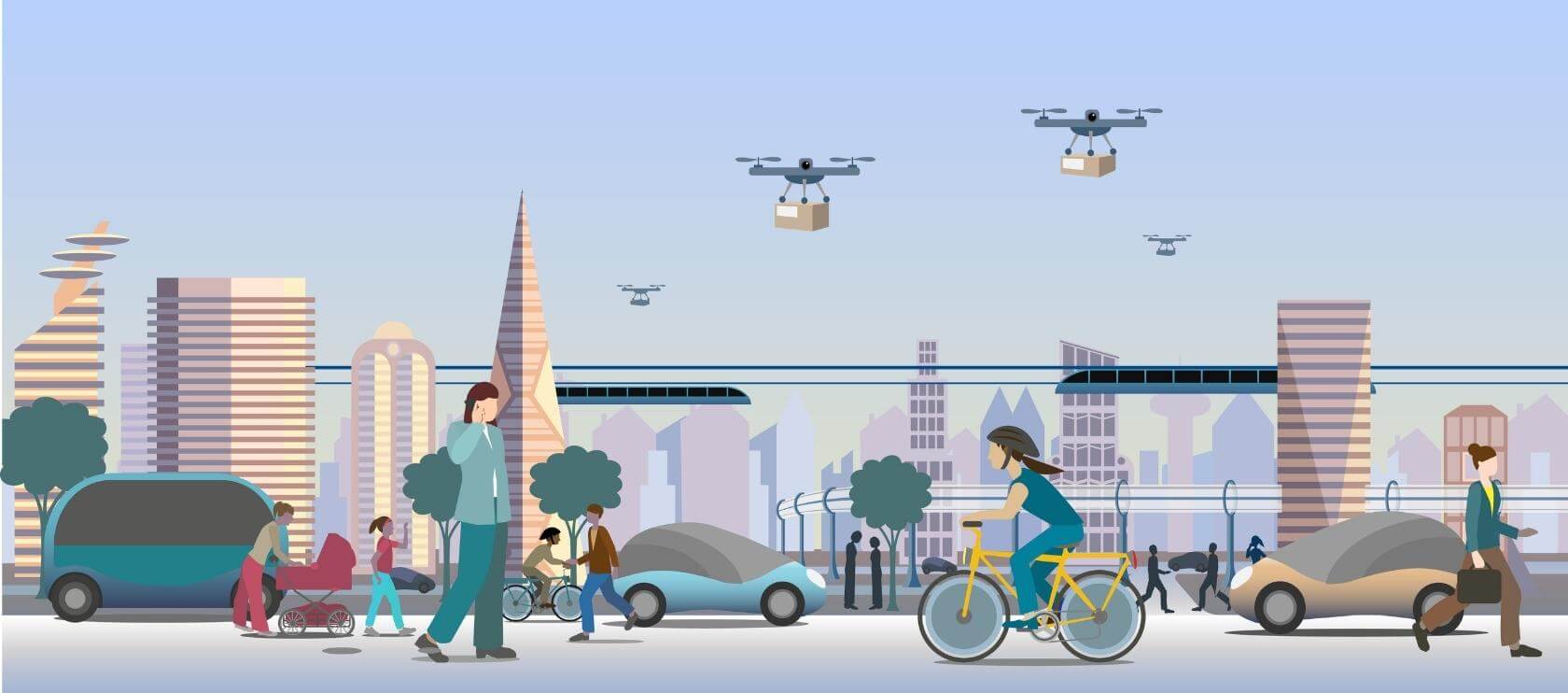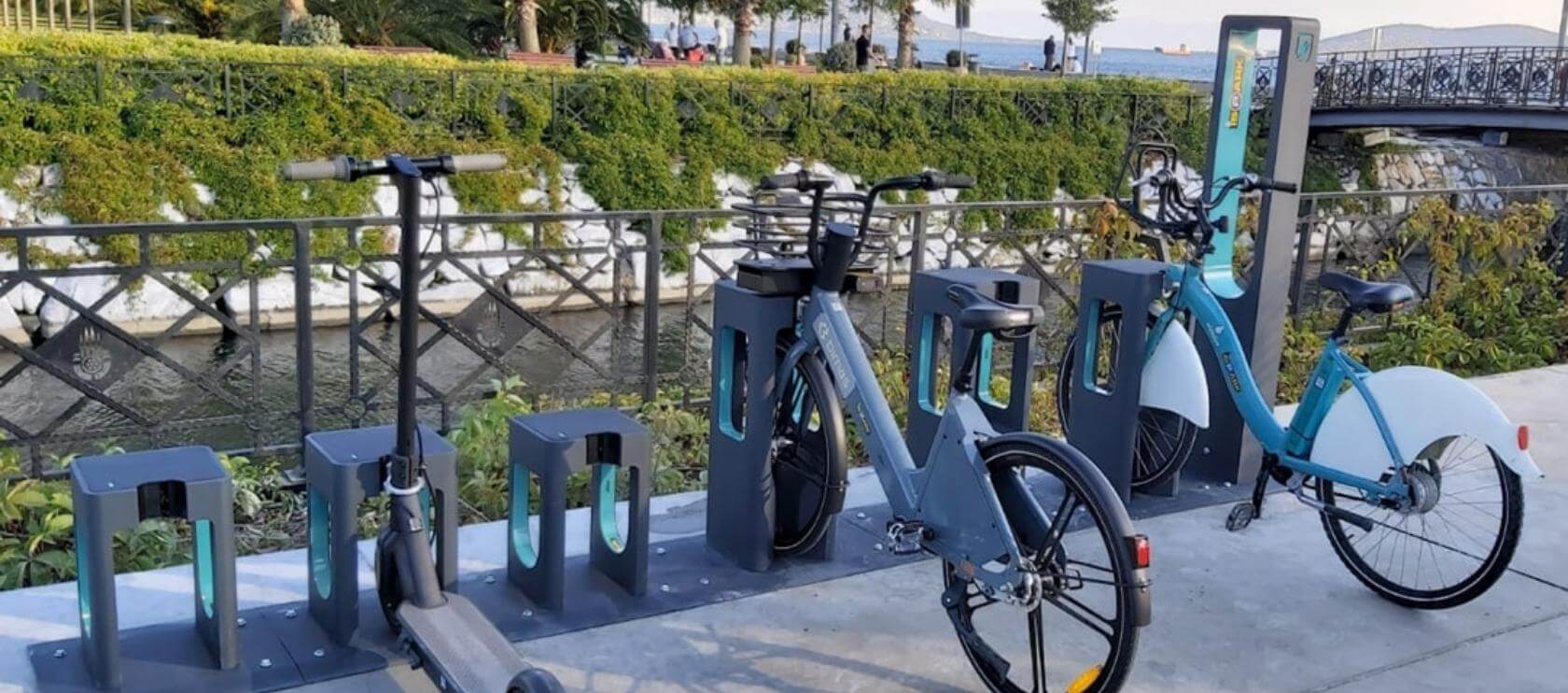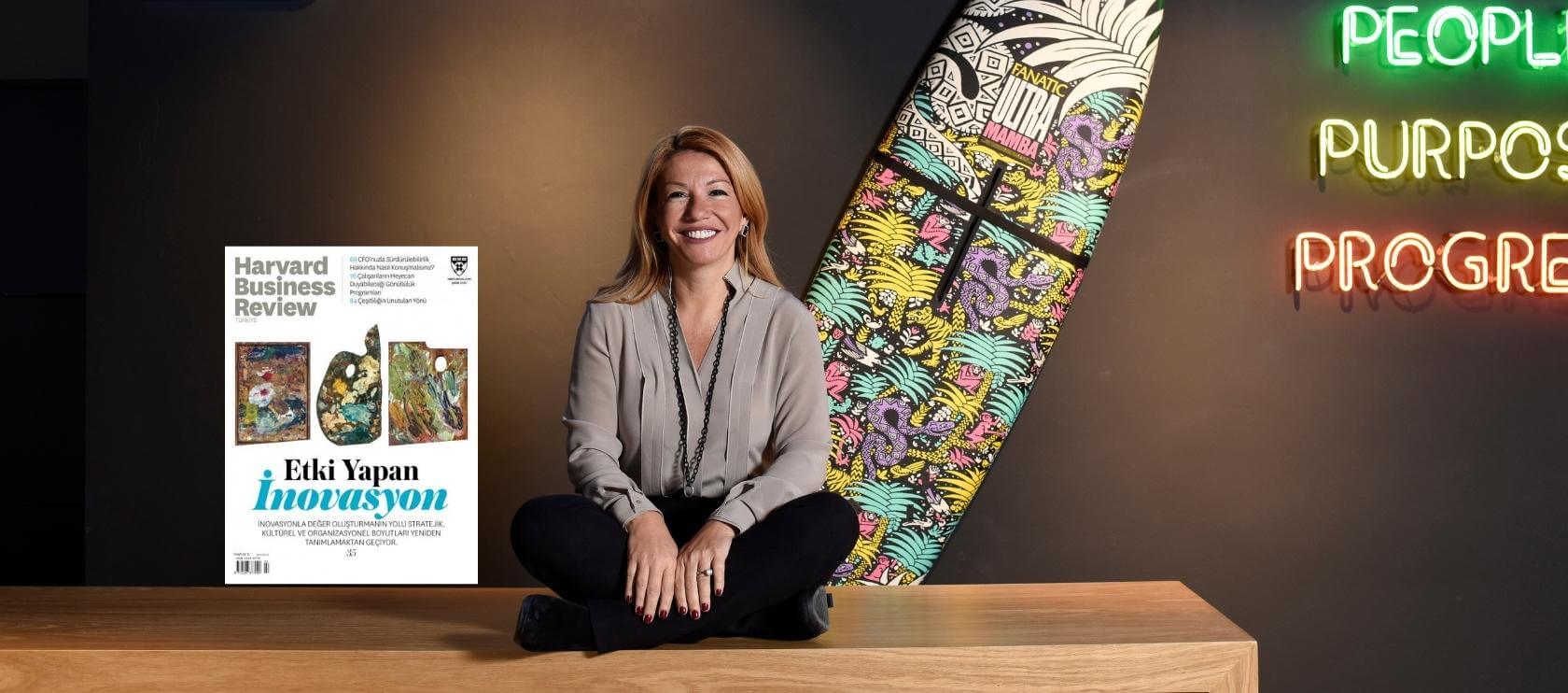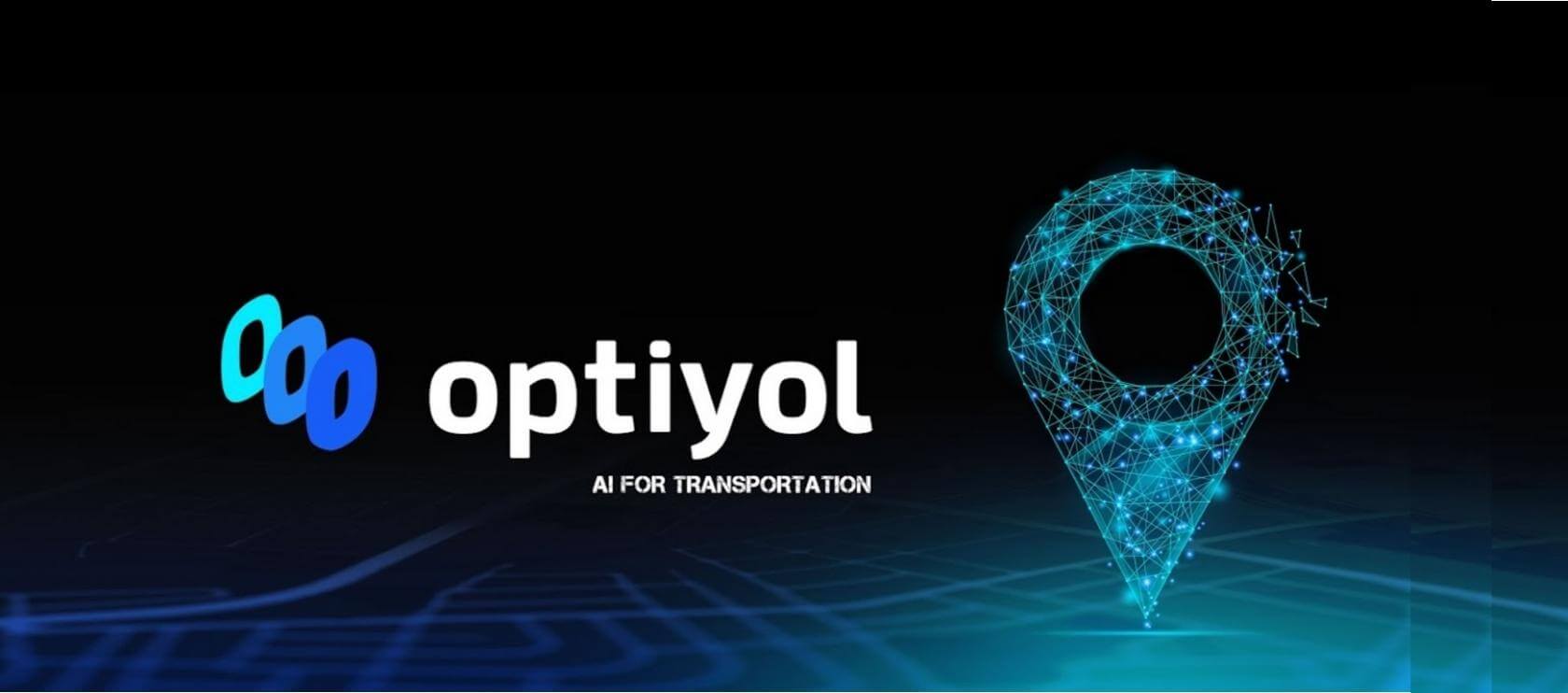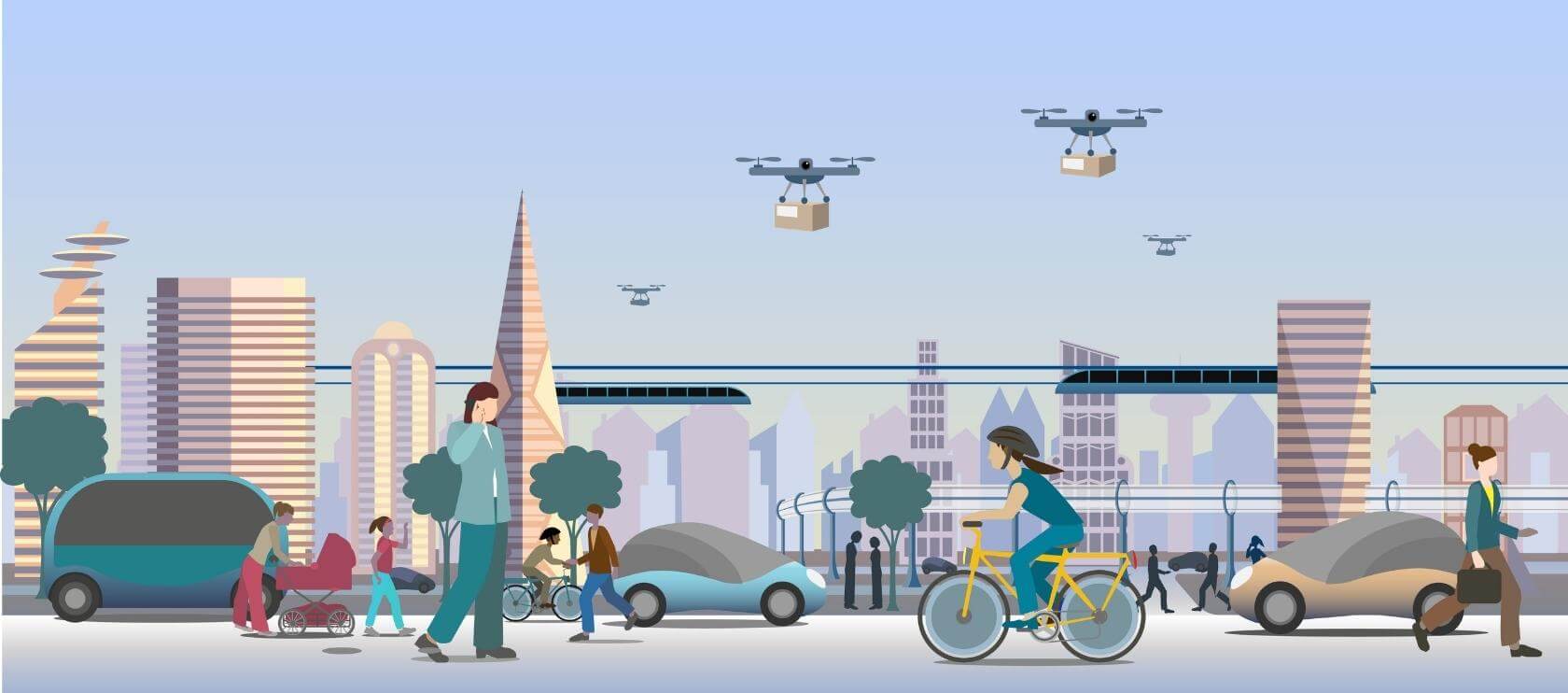ARTICLE
For our first Connect4Mobility event, we brought together professionals, academics, municipalities, and entrepreneurs. Connect4Mobility is organized by the Innomotion Urban Mobility Accelerator program in partnership with Sabancı University and funded by the EIT Urban Mobility. Our primary goal was to generate output through a more inclusive and holistic approach to urban mobility, not only by supporting startups, but also by developing infrastructures that will enable all stakeholders to collaborate and generate effective solutions that can add value and contribute to our transformation into sustainable and smart cities.
Extended summary of our Connect4Mobility Event:
- 2 Days
- 26 Speakers
- 11 Sessions
- 550 Participants
- 330 Ecosystem Stakeholders
16 Startup Pitches
You can watch the entire “The Future of Urban Logistics” Webinar on our YouTube channel:
Sabanci University’s Intelligent Transportation Activities
Prof. Dr. Mehmet Yıldız began his speech by emphasizing the importance of smart transportation and logistics in our country’s development plans, citing transportation’s largest input as energy, which contributes significantly to our current account deficit. He stated that for modern and safe transportation systems, competencies in technologies such as materials, energy, robotics, signal processing, sensor technologies, and so on must advance concurrently, and that we can only overcome these complex problems by establishing and supporting platforms that collaborate with other disciplines at the same time. He also stated that they intend to use Farplas’ extensive network to showcase the university’s successful initiatives to much larger audiences.
He stated that at Teknopark Istanbul, where industry and education coexist on the same campus, the Composite Technologies Center of Excellence, Integrated Manufacturing Technologies, the Nanotechnology Center focusing on sensor technologies, and the IICEC platforms and high-level energy companies all collaborate. While discussing the university’s capabilities, he stated that they want to bring entrepreneurs together with all of the university’s opportunities and experiences.

The Place and Importance of Smart Transportation in Sustainable Cities
Our founder, Ahu Serter, explained the reason for establishing Fark Labs, as well as its projects and future goals; “Transformation is an ongoing process; if you stop transforming, you will eventually cease to exist. As a Holding, you must constantly adapt to new situations and allow transformation to keep you young as you age. This is the foundation of our transformation perspective; transitioning from automotive to mobility is our primary vertical. Fark Labs not only transforms us, but also assists other businesses in their transformation journey.”

Circle 5 — Startup Pitch
With over ten years of experience in the defense industry, Rekrom Optoelectronics provides turn-key solutions to its customers in the fields of design, manufacturing, and integration, utilizing advanced engineering applications.
Comodif empowers connected mobility solutions by providing real time vehicle and driver data to their business customers. They have a robust cloud connectivity platform, deep device firmware know-how and a rich solution ecosystem addressing different use-case scenarios.
Speedy Market is an autonomous online grocery concept designed specifically for your building and delivered by robots. The benefit of Speedy Market begins as soon as the order is placed. Following the receipt of your order, your products are loaded from vending machines onto Speedy robots. Speedy delivers products to your door quickly, safely, and autonomously without the need for human intervention.
Mobiqu is a smart box company presents a box approach to last mile that develops packaging systems and solutions for both last mile delivery and cold chain. MobiQu designs and develops next-generation modular box systems that carry over the capabilities between cold chain and last-mile delivery. The company offers an integration with temperature control, IoT, and sensors to preserve and track your deliveries.
Optiyol improves city logistics to provide better service at a lower cost. Their solutions use cutting-edge machine learning and optimization algorithms to automate and optimize transportation planning decisions. Carriers can use Optiyol to optimize fleet selection, order allocation, and visit scheduling to ensure that they reach their customers on time and on budget. Optiyol saves its users 20% on fuel costs, 7% on capital investment, and brings a cool 3% increase in sales.
Evreka is a global SaaS company that develops intelligent solutions to reform the way waste operations are managed in a sustainable world. Evreka creates digitized and optimized systems using cutting-edge technology. Evreka collaborates with waste management companies and local governments looking for cost savings, operational excellence, asset control, and new management skills through solutions that promise overall efficiency. Evreka expands its solution portfolio and continues to innovate in order to provide the best service to clients in over 40 countries.
Büyütech’s unique vision technology, combined with its unique camera solution, aims to remove the most significant barrier to future mobility: enhanced safety. Their integrated hardware and software infrastructure provides affordable and scalable products that will serve as the eyes of millions of vehicles, ensuring their safety.
Car4Future is a complete hardware and software product for electric vehicles. Its features are; share and charge, blockchain tech, E.V. plug compatibility, detailed charging station map, personal and safe, and easy to pay.

3 Different Perspectives 3 Different Experiences
In our 3 Different Perspectives, 3 Different Experiences Panel, one Academy, one Government, and one Institution representative from the startup ecosystem shared their experiences.
- Okan University, Director of Transportation Technologies and Intelligent Auto
- Research Center, Faculty of Engineering and Natural Sciences Prof.Dr. Nejat Tuncay
- Brisa Bridgestone Entrepreneurship Manager Yeliz Erinçkan
- Istanbul Metropolitan Municipality Smart City Director Burcu Özdemir
Prof. Dr. Nejat Tuncay shared his knowledge and professional expertise with entrepreneurs. Tuncay, who moved to Arçelik Research Center after his academic career, emphasized that his research now takes place in industrial settings rather than university laboratories. He also stated that if advanced technology is not used, you would fall behind and will not be able to succeed. Later, he noted that when working as the project manager on Turkiye’s first electric automobile at TUBITAK’s Marmara Research Center, he discovered that “your competitiveness grows only when you also create the components.” He contended that the LIDAR and cameras had been exported and that Turkiye should be able to create them as well. As a result, in 2009, they began the Driverless Vehicle project and founded UTAS for Okan University in partnership with Ohia University and Okan University. “I would like to emphasize to my young friends: they should not disregard the product bell curve or the S curve,” Tuncay remarked, implying that as product quality improves, revenues rise. However, it should not be forgotten that competitors are doing the same thing, therefore it is critical to concentrate on what new technologies are available. He goes on to say that generating technological forecasts and foresight, particularly foresight, demonstrates the startup’s ability to produce technology. Finally, he discussed the Opina Project (opinaproject.com). The Open Innovation Autonomous Vehicle Development and Test Platform, worth 5 million EUR and overseen by the Turkiye Ministry of Industry, will also give the most clustering. A driverless vehicle is developed in an open-source laboratory under the condition that it contains all kinds of hardware, but in a software model, that is, its virtual twin.
On the Municipality side Istanbul Metropolitan Municipality (IMM) Smart City Director Burcu Özdemir emphasized that IMM believes in local innovation. She talked about the offline and digital opportunities available to entrepreneurs through IMM. She described Zemin Istanbul, which has five components, including studio areas where citizens can quickly experience the products or applications created from the initiatives and where youngsters can create animations. She also mentioned the Mobility Lab, which is scheduled to open at the Dudullu Station by the end of 2022, as well as the Smart City Lab projects in Kayışdağı, where both R&D and P&D may be done and where specific energy labs and environmental labs will be multiplied. Özdemir stated that IMM launched Turkiye’s first open data portal and that they are attempting to expand this data culture to all municipalities. Finally, she noted that they are working on a digital project named “Tech Istanbul.”
Brisa Bridgestone Entrepreneurship Manager Yeliz Erinçkan discussed the major mobility trends and Brisa’s transformation from a tire company to a sustainable mobility solutions company. Furthermore, Erinçkan said that as part of their cooperation with entrepreneurs, they provide prototyping and piloting facilities, open up their customer base, and provide a more flexible infrastructure to support their supplier systems.

Session on Measuring Environmental, Social and Cultural Impacts of Startups
In this session IMECE Director Mustafa Özer talked about 4 main movements. IMECE, which is turning its focus to impact investing and entrepreneurship, reveals the emergence of the concept of patient money; smart capital; end consumers questioning how much fossil fuel the startup uses before purchasing; and shift of investment focus towards startups that not only minimize risk or maximize return, but also maximize residual impact or minimize negative impact. Before concluding his address, Ozer advised investors that if they want to evaluate the impact of a startup, they should talk to and examine its beneficiaries as well as its customers.

Sustainable Logistics: The Impact of the Increase in E-commerce on Urban Life and New Business Models
Moderated by Urbanite Venture Founder Arzu Tekir; our guests at this panel are Package Taxi Co-founder Raşit Emir Süer, Fuudy.co Co-Founder İlker Baydar, Istanbul Metropolitan Municipality Head of Transportation Department Utku Cihan and Sabancı University Smart Transportation and Logistics Laboratory Faculty Member Dr. Gizem Özbaygın Tiniç.
Utku Cihan, the Head of Transportation Department for the Istanbul Metropolitan Municipality, stated that the transportation planning models that had been experienced and planned for years in Istanbul, and that had been used in the United States since the 1950s, became unusable following the pandemic due to rapidly changing transportation usage patterns. He claimed that the pandemic’s effects on transportation behaviors are still being felt, that additional parameters such as hygiene have been added, and that Istanbul Card usage and public transit utilization have not returned to pre-pandemic levels. As a result, new analyses incorporating all of these parameters are required. In addition to changing transportation behaviors, he stated that the subject of urban logistics will be added to national legislation, as there are units for logistics and freight transportation that were previously outside the scope of municipalities, but new units that examine freight logistics are being formed. He stressed that there are plans in the works for sustainable and environmentally friendly urban mobility, and that the logistics component should be included in them.
İlker Baydar, Co-Founder of Fuudy.co, conveyed that their primary goal is to deliver to the correct address and meet quality delivery requirements, rather than to be the courier who delivers the fastest in the shortest amount of time even if it may cost them more in the long run. He highlighted that he was involved in the work of the Ministries of National Education, Internal Affairs, Transport, and Highways, and that this subject was one of their top priorities. He emphasized that a cooperative culture is the most critical factor that will help us pave the way for creativity.He went on to argue that we must advance in education and legislation, that these areas should be incorporated into all aspects of our lives, and that development without them is entirely based on chance.
Raşit Emir Süer, the Founder of Paket Taxi, conveyed that the customer is responsible for the regulatory changes that will be implemented and that they should communicate their demands and expectations accordingly. He mentioned that in the new systems of Paket Taxi, they appoint a delivery consultant to each street, resulting in an uninterrupted transportation system, and ensuring that each player sticks to the plan because they know where the package will be at all times. Süer stated that he has an emotional approach to employment and is active in NGOs in this regard. H He also stated that this new system provides an alternative for citizens who lost their jobs in restaurants during the pandemic period and that it has the potential to create employment for approximately 25 – 30K people.
According to Dr. Dr. Gizem Özbaygın, laws lag behind technology and business strategies, slowing things down. She cited Amazon as an example in this regard, stating that the company revealed plans to begin using drones for delivery in 2016, but only received approval last year.
Özbaygın believes that concepts based on the sharing economy will become more common in Turkiye. She added that the Sabanci University Smart Mobility and Logistics Laboratory’s goal is to make transportation and logistics more environmentally friendly, smarter, and safer. Özbaygın also stated that not all sectors are susceptible to optimization. Although the systems we see in real life lag behind the academy, every system we imagine is operational, including how a business model is used in which cities and networks, how efficient it will be, and how they might stimulate and learn. She emphasized that their doors are always open to startups and that enterprenuers should benefit from the academy in this regard.

Session on Funding Opportunities for Scientific Programs and Mobility Initiatives
In the final session of our two-day event, TUBITAK Scientific Programs Specialist, Arzu İpek Üçüncü explained the topics that the initiatives and organizations working in the field of transportation would be interested in as part of the Horizon Europe Program.
Related News
ARTICLE
From a corporate venture to a successful startup: DUCKT’s inspiring story
INTERVIEW
Harvard Business Review – Our strategy: Dual Transformation
NEWS
Fark Labs, Born2Global & Sejong Technopark signed an MOU to support startups foray into Europe and Turkey
NEWS
OPTIYOL receives a new investment of 810 thousand dollars
REPORT
